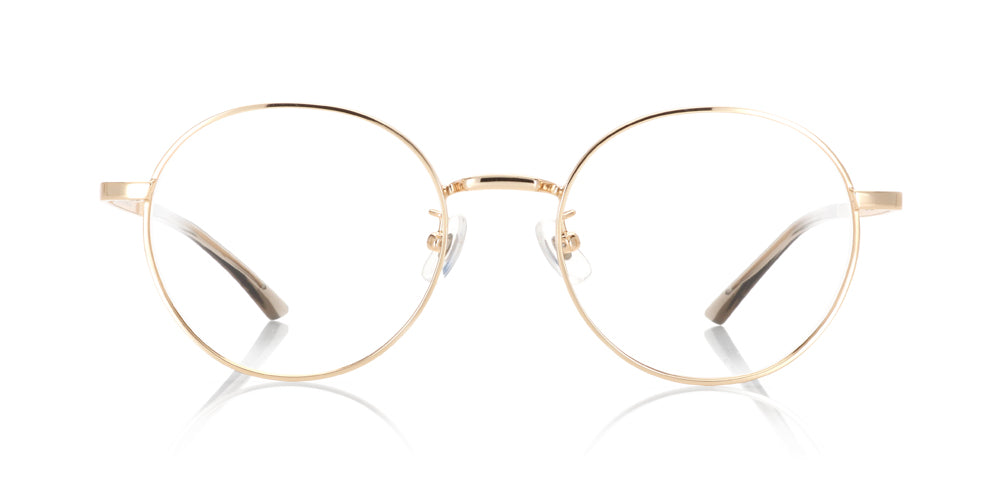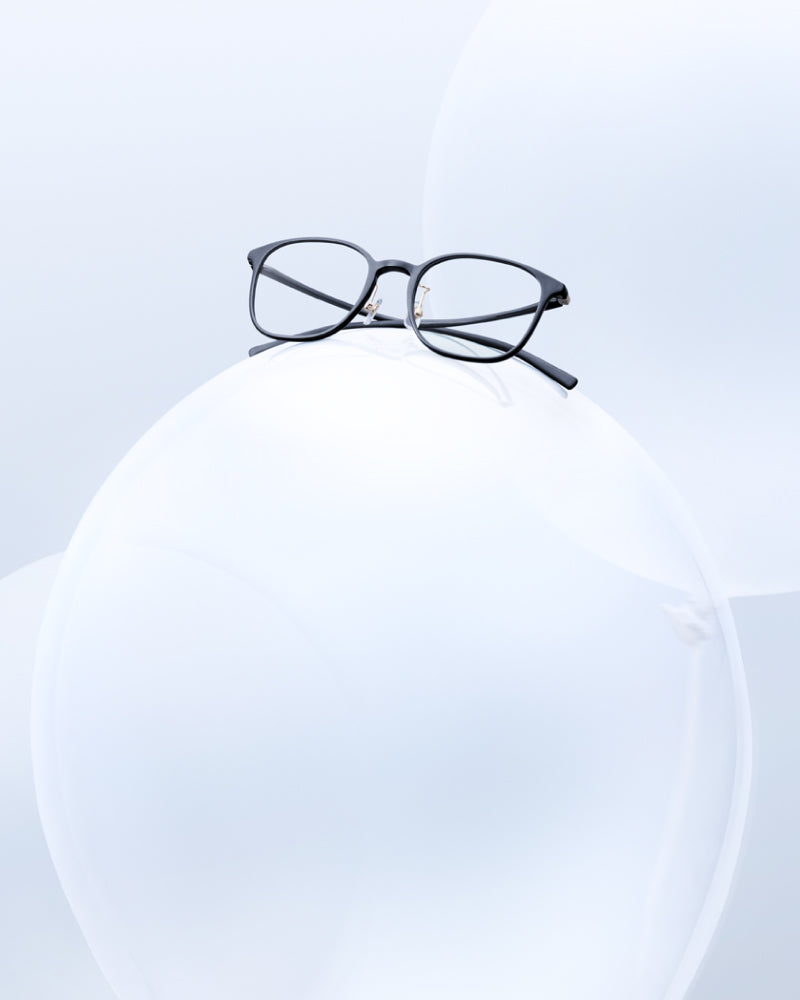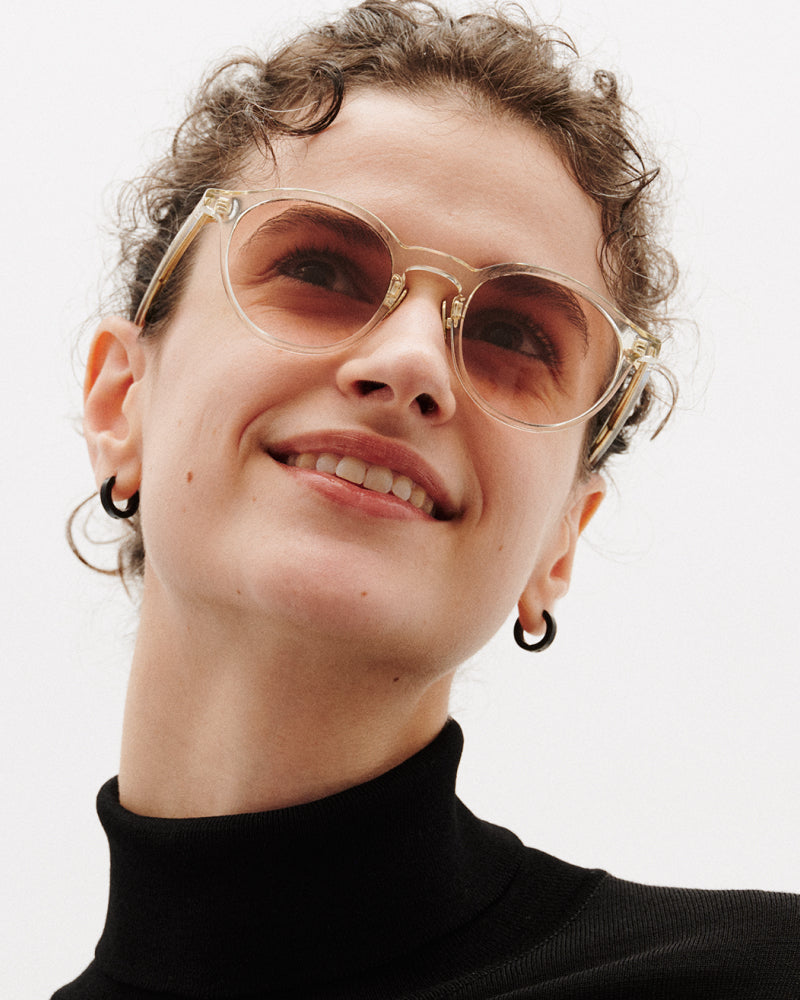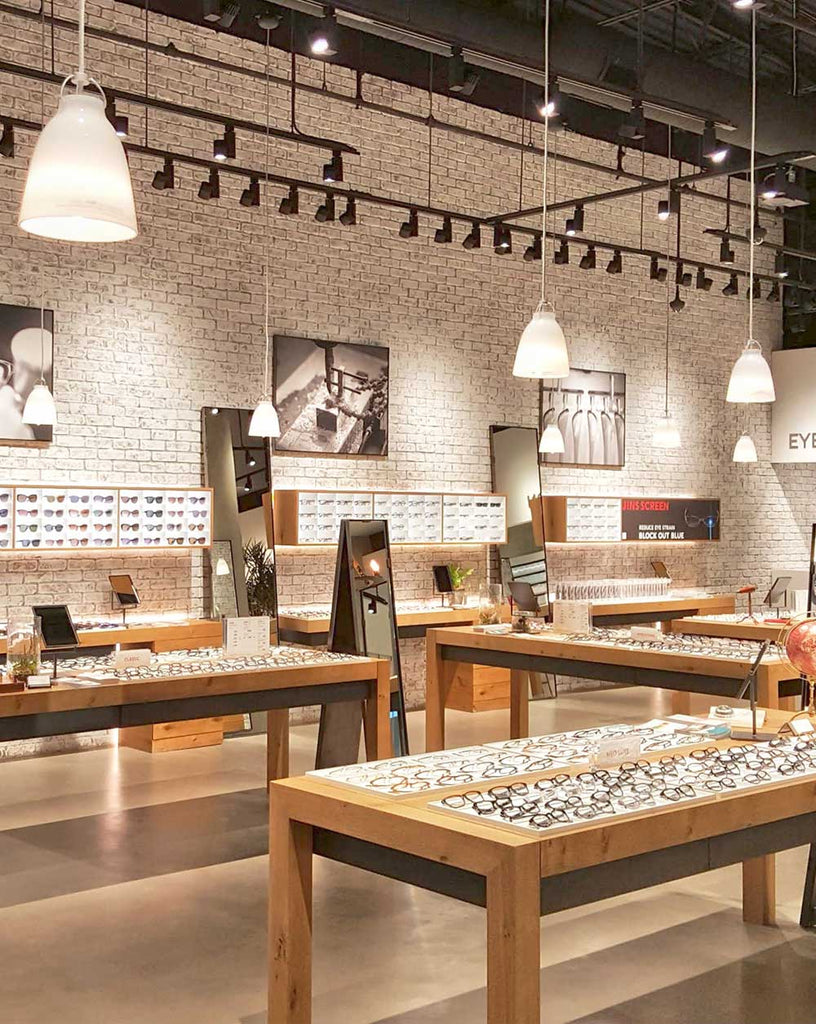Too much screen time can cause dry, tired eyes. This might seem like a minor issue, but the root cause can have long-term consequences. Excessive blue light exposure can contribute to sleep problems and eye health issues, like age-related macular degeneration and cataracts.
Blue light blocking glasses can help. Even if you don't need prescription glasses to correct your vision, you can benefit from blue light lenses to protect your eyesight.
Knowing what to look for when buying blue light glasses can be confusing. If blue light is so bad, why do we even have it? And are blue light glasses really that effective? It can start to feel like there's a lot of information to wade through.
JINS has research-informed, scientific facts you can rely on—plus practical pointers for picking the right blue light glasses for your needs.
Where Does Blue Light Come From?
Electromagnetic energy is all around us. We can see some types but not others based on their wavelengths. For example, X-rays and microwaves are among the wavelengths we can't see.
Light is also a type of electromagnetic wave. "Visible light" refers to electromagnetic energy that can be seen by the human eye because it falls into a certain bracket of wavelength.
Visible light generally measures from about 380 nanometers to 700 nanometers. Longer wavelengths transmit less energy, while shorter wavelengths transmit more energy.
Blue light is a super short wavelength light with a lot of energy. It vibrates in a nanometer range of 380 to 500, making it the most powerful visible light humans can see with the naked eye.
About one-third of the visible light spectrum qualifies as blue light, with sunlight being our biggest source. However, we are also exposed to blue light from artificial sources, including computer monitors, smartphones, tablet screens, and LED TVs.
Now, blue light isn't all bad. It can help support memory, elevate your mood, and boost alertness. Blue light in the form of sunlight is also critical in helping children develop good eyesight.
Unfortunately, blue light can also have negative health effects, especially long term. Blue light from screens can be especially damaging.

Benefits of Blue Light Glasses
What Does Blue Light Do to the Eyes and Body?
Blue light glasses block the blue light emitted by computers, phones, tablets, and other digital screens. This can help minimize the negative health effects of excessive blue light exposure.
The eyes aren't good at blocking blue light, so it almost always passes through the cornea and lens at the front of the eye. It then goes to the retina, the cells at the back of the eye that convert light so the brain can transform it into images.
It's thought that constant blue-light exposure can harm the retinal cells over time. This may contribute to vision problems in the long term, like age-related macular generation, cataracts, and even eye cancer.
Blue light exposure is exacerbated when using screens because people also blink less when staring at a screen. This leads to dryness and eye strain. Eye strain may also come with symptoms like blurred vision, headaches, and neck and shoulder pain.
On top of that, excessive blue light exposure is thought to confuse the body's internal clock and disrupt the natural circadian rhythm, which controls your sleep-wake cycle. This is because blue light interferes with the release of melatonin, the "sleepy" chemical your body produces when it's time for bed. Without melatonin, you may have trouble falling or staying asleep.
In the big picture, poor sleep is linked to various health problems, like depression, high blood pressure, obesity, heart disease, and Type 2 diabetes.
How Does Blue Light Screening Help?
Blue light blocking glasses are one way to cut down on blue light exposure.
If your devices have a "night" mode, use it to give your screen an orange tint that reduces blue light. You also might want to cut down on device use before bed since scrolling, watching videos, and playing games on your phone can also stimulate your brain.
For daytime, you can still count on your blue light glasses to protect you. Even if you don't require prescription glasses to protect your vision, wearing blue light blocking glasses can be a smart way to safeguard your eyes.
JINS has long recognized the potential dangers of blue light and created products to help protect against it.
In fact, JINS was at the forefront of blue light research, working with the Department of Ophthalmology at Keio University School of Medicine to determine why a long day in front of a screen led to tired eyes.
This helped illuminate the dangers of blue light well before research was being done elsewhere. It also helped JINS develop products that could protect against the dangers of blue light, resulting in blue light blocking glasses that are informed by science.
Today, JINS continues to work with researchers around the world to determine the benefits of blue light glasses. We launched our blue light lenses in 2011—and became eyewear industry pioneers—and have sold over 11.5 million units to date.
For example, the pros and cons of blue light blocking glasses for kids are still being discussed. There have been reports that blue light blocking glasses may be damaging for children, keeping them from getting the light they need to develop healthy vision.
JINS continues to collaborate with scientists to develop cutting-edge research, so we can create the best products possible for our customers.

How to Buy Blue Light Glasses
Glasses are an investment in your everyday health and comfort. You don't want shopping to be a guessing game, especially if you're investing in blue light blocking lenses. Follow these steps to make buying glasses online a breeze.
1. Choose Your Frames
Different frames are suited for different face shapes, like high-bridge versus low-bridge (or "Asian fit") frames. JINS takes the guessing game out of picking frames with a Virtual Try-On button on the product page.
2. Have a Current Prescription Handy
If you require vision correction, know your prescription—and remember that each eye may have its own corrective needs. If you haven't gone to the eye doctor recently, this is your sign to go.
Your prescription will tell us how strong the lenses need to be, whether they need to correct astigmatism, and whether they should be single or progressive.
JINS offers lightweight lenses, including high-index 1.60 and high-index 1.67 for both + and - sphere prescriptions, as well as high-index 1.74 for certain - sphere prescriptions.
3. Select Your Blue Light Protection
JINS offers blue light protection for various needs. Our "daily use" lenses are for everyday digital device use and offer a block ratio of 25%. Our "heavy use" lenses are for heavy screen time usage and block 40% of blue light waves.
Not sure what level of blue light protection you need? There's no one right answer for every person. The truth is that it depends on your daily habits and hobbies.
If you don't work in front of a computer, you're probably fine with JINS' daily use lenses. However, if you spend hours in front of a computer screen and then come home and spend more time watching or scrolling on a mobile device, our heavy use lenses may be a better fit.
Your hobbies are another consideration. We usually advise gamers, who spend hours playing in front of a screen, to go for the highest level of blue light blocking glasses. Our gamer glasses can help keep you comfortable.
Whichever option you choose, you can be confident you're getting a quality product with JINS. We recognize that glasses aren't just a style statement. They should help improve your everyday quality of life and protect your long-term vision.
That's why JINS continues its commitment to science, working with researchers to create products—like our blue light blocking glasses—that are both effective and versatile.


















